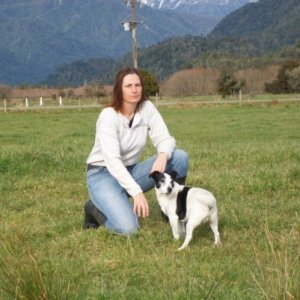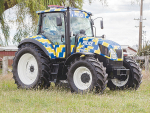Farmers are being urged to report all stock thefts in a bid to get more police focus.
"It's a big worry with people creeping around at night blatantly stealing property," Milne told Rural News.
"I hope it doesn't end up in a really bad tragedy late at night before something changes and the behaviour is stopped. I keep worrying that will be what it takes before it's taken more seriously."
Milne was voted onto the Feds national body in June and she has personally confronted armed poachers on her West Coast farm.
Milne says police probably do take stock rustling seriously, but have low numbers and trouble pinning the crime on somebody. "They are off and gone like robber's dogs."
The police commissioner or deputy commissioner will be tackled about stock rustling when one of them attends the Feds' board meeting in August. It's a good time to raise the issue because of their increased focus on crime prevention, says Feds' outgoing rural security spokesman David Rose, who stood down from the national board at the June annual meeting.
Rose says farmers must report all incidents. They often just wrote off six or seven sheep being stolen, but it could help police solve part of a bigger puzzle.
Feds' Gisborne/Wairoa president Hamish Cave reiterated that farmers, others living in the rural districts and stock agents must report anything suspicious. "It's all about giving information to the police to put the puzzle together."
Stock agents could be particularly helpful as they know the farmers and what numbers they have in stock and land. "They probably have the best understanding of people's activities. They, as everybody else, have a role to play in reporting unusual activities or unusual trading of stock."
Cave says boats and diving gear can be seized with fisheries prosecutions. But with stock rustling the fines and prosecutions seem light, and there appear to be no powers to confiscate equipment such as motor vehicles, motorbikes or utes.
A police spokesman says police take all crime seriously, including rural stock theft and other crime affecting rural communities. "We value our relationship with rural communities and work wherever possible with them to reduce crime as part of our Prevention First strategy," he says.
The theft of animals is covered in the Crimes Act 1961. The penalty for stock is the same as the penalty for theft of the same value but there could be other charges such as intentional damage or burglary depending on the actions of the stock thief.
Police don't require 'special powers' to deal with stock theft, the spokesman says.
"Any tools or equipment used in the commission of the offence can be seized as exhibits and the court asked to determine what happens to them (ie an order for forfeiture can be sought).
"If farmers believe a theft is occurring, police should be immediately alerted. Any suspicious activity should also be reported to Police.
"Police also encourage people in rural communities to get into the habit of recording the details of unfamiliar people or vehicles that may be acting suspiciously, and pass that information onto local Police."
More information about staying safe in rural communities is available on the Police website: http://www.police.govt.nz/safety/rural.html



















